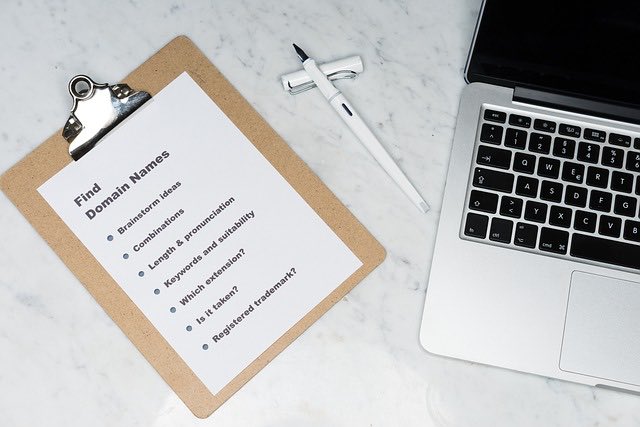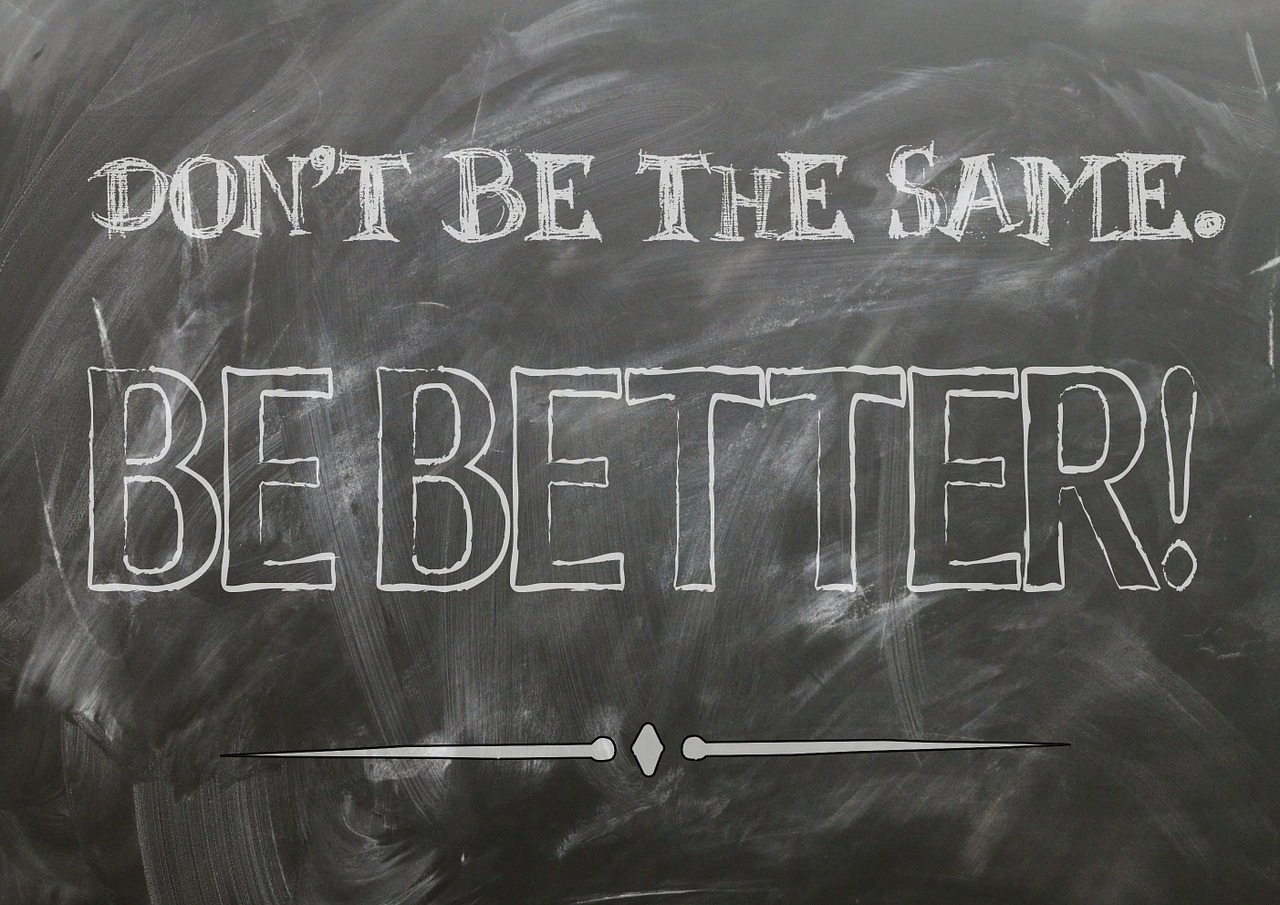If you’ve arrived here to find out what blogging is and you are also thinking of starting your own blog, then you’ve come to the right place. I salute you!
Blogging is becoming more and more popular today than it ever was, and there are a few solid reasons for that.
First of all, creating and maintaining your own blog has become extremely easy. It takes a couple of clicks and your blog is up. In the past, you would have to pay a developer to create your blog (website) and then pay again every single time you wanted to publish a new article or make a change.
Secondly, it is now clear that blogging can easily be monetized in quite a few different ways. If you are dedicated and lucky, it can earn you millions, although most people are more than happy to earn at least a couple of thousand bucks on the side.
Finally, the whole pandemic situation in the world has shifted people to work from home like never before. This has pushed the online education industry to grow tremendously. And guess what, your blog can be a part of that movement as well. Think of offering online courses on your blog, coaching, memberships, etc. Heck, you can even open an online store selling physical products through your blog if you choose to.
Download our FREE guide >>>7 SMART STRATEGIES TO GROW YOUR BLOG TRAFFIC FASTER!<<<
In this article, I will try to briefly explain what is blogging and what it takes to create a successful blog in the long run. Enjoy!
How to start a blog and monetize it
1. Picking the right niche
If you ask me, what blogging is and where it starts, I’ll say it starts with the niche. If you pick the wrong niche, you will never succeed as a blogger. Here is why.

Your niche is the core of your blog. That is where everything starts and everything ends.
Your niche is what you will think of when you brainstorm for new topic ideas, when you are communicating with your audience, when you are monetizing your blog, when you write emails and even when you create a private Facebook group for your blog.
If you start off with the wrong niche, you simply won’t last due to a lack of interest.
To begin with, you need to decide why you are creating a blog in the first place. Is it going to be a diary of some sort? Do you want to share something with the world? Is it going to be political? Is it because you love sports? Do you want it to become a source of income in the future? All of these things need to be decided on well in advance before you launch the blog.
This part cannot be rushed through! Take your time. Give yourself a couple of weeks.
Sit down with a piece of paper and come up with ten different things you could write about. After careful analysis, leave three topics that make the most sense.
Study each topic/niche carefully and think of the following:
1. Am I truly passionate about this?
2. How much do I know about this topic?
3. Will I be able to create new content on a weekly basis? Is the niche maybe too narrow or maybe too broad?
4. How will I be able to monetize this niche in the future? Can I sell a product? Are there plenty of products to review in this niche? Can I coach the subject? Are there advertising possibilities? A lot of important questions to think about.
To get some insight into your future niche, go online and look for other blogs in that field. Study them. Think of how you can be different from all the rest. The goal is not to copy anyone else, but to be unique.
Go through these steps with the three blog niches. Once done, pick the best one and if you feel satisfied with the result, you’ve found your niche.
Tip: DO NOT run after the money! If you don’t really care so much about what you are going to write about, and you are just in this game for the money, then I am sorry to say, it won’t work. It simply won’t. Blogging is more about creativity and commitment. Both of these things are impossible without genuine passion for what you are doing. Money will certainly motivate you for a while, but the key phrase here is “for a while”.
2. Choosing a platform for your blog
Once you are clear with your niche, you will need to set up your blog. This means you will decide on the platform, the domain name and the hosting provider.
Platform
The days of having to code your own website are over. You don’t need to code anything anymore to have a blog up and running. You will be using a specific CMS to hold your blog. A CMS stands for Content Management System. Simply put, it’s a platform for your blog.
But watch out.
You will find people online claiming that you can have a 100% free blog using an existing platform made specifically for blogging. I strongly encourage you to NOT use one of those.
Why?
Imagine you write a bunch of posts and you feel like blogging is for you. You now want to transition all of the content to your own custom blog. Well, all of the content that you have so far written will not be counted as original on the new blog. In other words, you cannot publish the same content twice on different platforms and expect it to be seen as original. The internet remembers what article was published where and when. You would have to most likely create new content.
The only way to make sure that you are getting the most out of your work is to start your own blog (create a new website) from day one. This way every single article that you publish will be considered in Google’s search engine results as yours and yours only. The more articles you write, the more people you attract and the quicker you can monetize them. I hope this makes sense. If it doesn’t, let me know.
You will come across plenty of different CMSs, but I recommend only one – WordPress.
WordPress is one of the easiest CMSs to use and is the most popular in the world. I hope this is convincing enough.
So let’s imagine you will be using WordPress. Now all you have to do is come up with a domain name and get a hosting provider.
My domain name is www.gedground.com… yep, could’ve come up with a better name, to be honest. But I didn’t have at the time the information that you have today.
Nevertheless, your domain name should be short and informative, similar to what your blog’s name is. Ideally, it should contain one to two words and have a .com ending. Why .com domain? Simply because it’s the most common and easy to remember.

Once you have come up with a possible domain name, check its availability here. If it’s available, great. If not, simply think of a new one.
Now, once you have decided on your blog’s name and the domain name, time to set WordPress up with your hosting provider.
There are plenty of hosting providers out there, but I use Bluehost and that is what I recommend.
1. It’s cheap.
2. Offers a free domain name for the first year.
3. Easy step-by-step set-up.
4. The support is there for you, 24/7.
After you have set up your website with your hosting provider, that’s it. Now you officially have your own personal blog and you are ready to create content.
Remember, unlike a free blogging platform with a free hosting provider, you now have your own website, your own blog. It’s like renting an apartment vs buying one. Now you bought your own apartment.
What does this mean for you?
It means that you are free to do whatever you want with your blog. You can pick any theme you want and you can even modify the code of the blog if you choose to. But most importantly, you can monetize your blog the way you want. Most free platforms don’t give you this kind of freedom.
But more about monetization later on.
3. Content creation
When it comes to understanding what is blogging, honestly, content creation is what you will be learning over and over as your online business career evolves.
Click To TweetContent creation is easy to grasp, but really hard to master.
In my head, I always divide content creation into three parts: keyword research, writing and SEO.
1. Keyword research
What is Keyword research?
Keyword research is what you do before you create any new article.
Every time you go on Google, you search for something specific, such as, “how to start a blog” or “what is blogging”. Both of these are known as keywords, or key phrases to be more exact.
When you type in your key phrase into Google, you know what you are looking for and you want to see certain results appear. In this case, you want to see websites that will explain what is blogging or how to start a blog.
The way Google understands which websites should pop up in the search engine results is by analyzing what the user searched for – the keywords.

Let’s take this blog post as an example.
The key phrase of this blog post is “what is blogging”. I have it written in the title and I keep repeating it over and over throughout the text. By doing so, I am letting different search engines know that this blog post is about blogging (what is blogging, to be exact).
So when you type in “what is blogging” or “how to start a blog” in Google, ideally, I want you to see this blog post at the top of the search engine results. The higher this post is, the more chances that it will be clicked on.
So whenever you write a new blog post, you should always make sure that you have some specific key phrase in use. In other words, that key phrase will be what your blog post will be about.
If you don’t use any specific key phrase, chances are that nobody will ever find that blog post through the search engines, such as Google. Work done in vain.
There are many ways to figure out which keywords to use. The decision needs to be made intelligently.
I’ve already written about the methods of doing keyword research in the past, so I won’t repeat myself here. Make sure you take a look at the other article: What Is Keyword Research? – How to Grow Your Blog Efficiently.
2. Writing
Once you know your keyword/keywords, time to start writing.
Writing comes down to creativity and your writing style. The goal here is not to copy or imitate anyone. I made the mistake in the beginning by copying the styles of other famous bloggers and it didn’t feel right. Once I realized that it feels right to be unique, that is when I began to enjoy blogging even more.
Tip: use a free Chrome plugin called Grammarly to check your grammar. I can’t imagine my life without it. Also, try to make your blog posts at least 1000 words long. If you check the statistics, long 2000-5000 word articles do better than shorter ones. That being said, don’t just shove unnecessary words in there. Make your content interesting, informative and preferably, funny when possible. This way you will have success. I’ve seen a lot of long and very dull articles out there. Not cool.

Recommended: 10 Tips on How to Write a Blog Post That People Will Actually Read
3. SEO
SEO stands for Search Engine Optimization. This is what you will have to learn in order to be a successful blogger. But it’s not hard, don’t worry. A couple of good articles and you are good to go.
Keyword research is a part of SEO, but that’s not all.
By applying SEO, it means that you are doing all that you can in order for the search engines to find your blog. It involves plenty of things which I have already discussed in another blog post. To not repeat myself, here is the link to it: What Is SEO and How It Works – the Dos and Don’ts. Make sure you have a look at the article. It will clarify a lot of things.
Tip: since you are using WordPress, download a plugin called Yoast SEO. Game-changer.
Yoast SEO is probably the best and most important plugin that any blogger can use. The plugin makes sure that as you are writing your article, you are doing everything you need to do in order to make your blog post SEO-friendly. It’s like your best friend along the way and will simplify your life tremendously.

4. Marketing
Your work with content does not end with a finished blog post, na-ah. Now you must let the world find it.
You should create business/fan social network accounts. In my case, I use Facebook, Instagram and Twitter. Share your newly created blog post there. You can also share your blog post to other Facebook groups, but make sure you first ask the admins if you can do that. Or you’ll simply be banned.
Additionally, go on websites, such as Quora and Reddit, and share your content there as well. Again, don’t spam. Communicate with others. Give value first, then leave a link back to your blog. This way people will actually appreciate it.
Finally, find other blogs and forums in your niche and see if you can leave a link there as well.
The more places you can find to share your content, the better.
Yes, this is quite a bit of work, but the more you put in, the more you will get out. You will thank yourself for this once your blog begins to take off.
Tip: try to not overload yourself with work. Don’t try to complete the article and the marketing in one single day. I usually write and do the sharing on two separate days. Feels a lot easier that way.
Hopefully, this gives you a better idea of what blogging is really like.
5. Monetizing your blog
Although blog monetization might seem like something you’d wanna do right as soon as you create your blog, you really shouldn’t. You won’t make any money at that stage.
As already mentioned, blogging isn’t a get-rich-quick scheme. If you’ve decided to become a blogger, you must know that it will take time. You will spend a lot of time creating content, advertising it and growing traffic. It might take years before you see real traction. But the good news is that if you are blogging about something you genuinely care about, then the time and effort spent shouldn’t worry you.
So, let’s imagine a decent amount of people land on your blog every day. You feel like now is the right time to make your blog a new stream of income. Let’s see what options we have.

Product reviews.
One thing that you can do to make money is review products.
Pretty much any niche has something that you could review, whether it is a technology blogger reviewing a mobile device of some sort, or a travel blogger reviewing backpacks or a hotel.
Moreover, you don’t necessarily need to review a physical product. You can review online courses.
So how do you find a product to review? Well, there are three ways.
Way 1. There are websites that are made specifically to allow sellers and bloggers to connect. A seller puts out a product, and if you like the product and want to review it, you contact the seller and you both make a deal.
It may be so that you get the product for free in exchange for a review, you get paid for the review, or you get the product for free AND you get paid.
To find such websites, just type in Google “where to find products to review”. You’ll see plenty of options.
Also, you can use Facebook to find products. I know that Amazon groups on Facebook have plenty of sellers that are looking for bloggers to review their products.
Way 2. The second way to find a product to review on your blog is simply by reaching out to a company that has the product you are interested in.
If your blog is popular, a company just might reach back to you. But if you have a new blog and you want to review an expensive device, maybe it won’t. But either way, don’t take it personally if you don’t hear back from them. Most companies are really busy with requests.
Way 3. Finally, once your blog traffic starts growing, people will reach out to you themselves. But please, don’t go on ruining your reputation early by reviewing everything that comes your way. I get review emails often, and most things that people want me to review is garbage.
Tip: don’t review anything related to gambling or drugs of any sort, even if they are “kinda” legal. You don’t want to get in trouble and it’s really not ethical, at least in my opinion.
Also, when making reviews, please be honest and let your readers know that you have received the product for free in exchange for a review.
Remember:
Click To TweetIt takes 20 years to build a reputation and five minutes to ruin it. If you think about that, you’ll do things differently. – Warren Buffett
Selling your own products, physical and/or digital
One other thing you can do to make money from your blog is to sell your own products.
For example, you could sell your own merch, such as hoodies or mugs (bloggers do this all the time).
You could create an online course around the niche that your blog is in. So when people visit your blog for free material, you have some more in-depth material to offer them as well. You can host the online course on your blog or have a link pointing to a third-party platform that will host your course for you. One such popular platform is Udemy.
In addition, you can grow your own consulting or coaching business through blogging. If you are a lawyer, you can create a lot of free content around the part of law that you specialize in, and have your contact details available for people to find in case they are interested in hiring you.
Affiliate marketing
I’ll briefly mention affiliate marketing, but if you want to get into more details, you can read my more in-depth article on affiliate marketing here.
So what is affiliate marketing? Simply put, affiliate marketing is when you advertise another person’s product, and each time someone purchases that product through a link that you have on your blog, you will earn a commission for it.
For example, you have a blog about style and fashion. An online store with a fancy dress reaches out to you and asks if you can be an affiliate for that dress. You agree, after which the store gives you a personal unique link that you will insert into your blog somewhere. Whenever somebody clicks on that link and buys the product, you will get a commission for it.
The commissions vary. Sometimes it is 5%, sometimes it is 50%. Sometimes the commission is $5, sometimes it is $2,500. Yep, it can be that much per sale. Imagine 500 sales.
The great part about affiliate marketing is that you don’t have to sell anything of your own. Instead, you are simply promoting something that is already out there. The other good thing is that affiliate marketing can potentially earn you hundreds of thousands and even more. Check out one of my experiences with affiliate marketing here.
However, the bad thing about affiliate marketing is that it is not too straightforward. Sure, you can make a bit without a big following and experience, but if you wanna make the big bucks, you need a decent audience and you need to know what you are doing. But that’s ok, you get there with time.
Tip: DO NOT promote garbage! Almost all beginner bloggers make this mistake, including me. You’re still new to blogging, and suddenly someone reaches out to you and asks you to promote their product. The fact that someone reached out to you and asked you to become an !!!affiliate!!! for them gets you super excited, and you agree. You end up promoting a bad product and make no money from it. And if you do get someone to buy it through you, you might receive a lot of hate for it later on as it was a bad product. Just don’t do it. Wait for a good opportunity, something that feels right.
Be an affiliate for something that you have either used yourself and enjoy, or something that you know is worth it. Be honest with your readers. Also, just like with product reviews, let your visitors know that you are an affiliate for that product.

P.S. If you want to learn in detail how affiliate marketing really works, make sure to check out this online course. I’ve personally gone through it and I highly recommend it to you as well.
Selling ads and/or having paid content on your blog
I have grouped selling ads and having paid content together because these both are kind of ok ways to make money, but I suggest you don’t focus on them.
Having ads on your blog will not make you a lot of money, but will make your blog look ugly. Unless you have millions of monthly visitors, don’t turn on any ads on your blog, such as Google AdSense. They don’t pay much.
The same goes for having paid blog posts on your blog. Paid blog posts are when someone writes an article for your blog and asks if they can leave a link pointing back to a specific website. In exchange, you get a small sum of money. Why is this not wanted?
1. You won’t be paid much. Pocket money usually.
2. The article may be written poorly, and it will take more time for you to edit. Wasted effort. You are better off having your own content on your blog.
3. The article may not be in line with your blog’s niche. It will simply look weird and your readers will understand that it’s not you who has written the article. It may push many people away.
4. Often the links will be pointing at really bad websites or websites that sell shady things. You don’t want that.
Even though I receive daily a few requests for a sponsored post on my blog, I rarely accept them. If I do, I make sure I set strict guidelines. If any of those guidelines aren’t met, I decline the post. You can find my guidelines here.
Conclusion
Blogging is not something you do for a month and quit. Nope, it’s a long-term game. Sure, it is challenging at times when you don’t understand something or when you have no motivation to keep writing, but that’s ok. It should be like that.
Nothing in this world comes easy, and blogging is not an exception. If it were easy, then everybody would be doing it and becoming millionaires. However, blogging is probably one of the easiest types of “business” out there because you get to write about things that you truly care about.. and there is no one to tell you that you are doing it wrong.
If you fall in love with blogging as I have, then you will have no trouble moving forward with it even when you don’t get paid. It’s the truth and it’s totally worth it.
This was it for today. As always, if you have any questions, feel free to shoot me an email or leave a comment down below. 🙂
Thank you for stopping by and good luck!
Please click below to subscribe and follow us on social media:
Click here to follow us via E-mail!
Click here to follow us on Facebook!
Click here to follow us on YouTube!
Click here to follow us on Instagram!
Click here to follow us on Twitter!
Click here to join our Facebook group!



 15 Best Inspirational Movies That Teach to Never Give Up
15 Best Inspirational Movies That Teach to Never Give Up
 50+ Best Self-Help Books That Will Change Your Life Forever
50+ Best Self-Help Books That Will Change Your Life Forever
 Short Motivational Stories of Failure and Success That You Must Know
Short Motivational Stories of Failure and Success That You Must Know
 10 Examples Where the Power of Positive Thinking Kicks Ass!
10 Examples Where the Power of Positive Thinking Kicks Ass!
 What to Do When Someone Is Better Than You? – Dealing with Jealousy
What to Do When Someone Is Better Than You? – Dealing with Jealousy

Leave a Reply